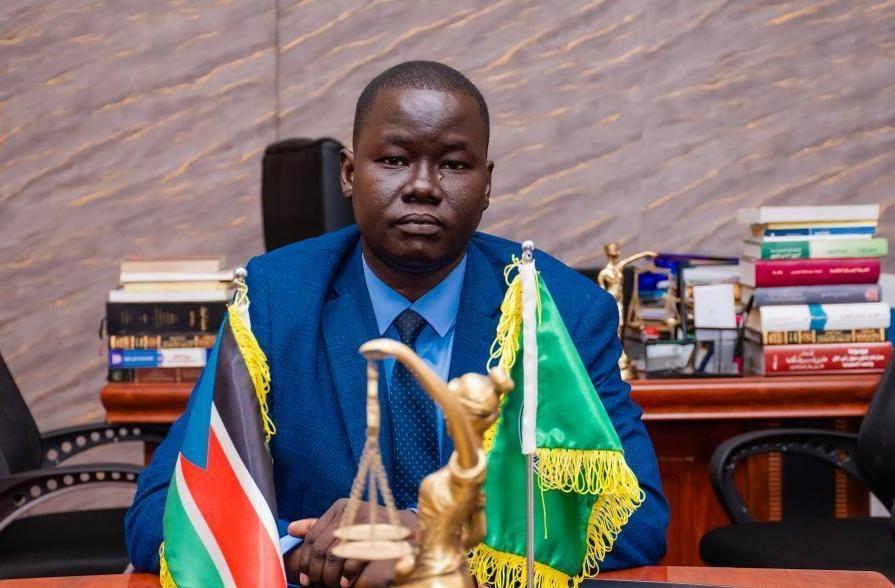Africa-Press – South-Sudan. A human rights activist and legal researcher has welcomed President Salva Kiir’s recent promotion of judges, describing it as a crucial step towards reforming South Sudan’s judiciary.
However, he also called for the complete appointment of all Supreme Court members to meet constitutional requirements.
Deng John Deng, Director of the African Centre for Studies, stated that the promotions address a long-standing shortage of judges and aim to restore public trust in the judicial system.
On Tuesday, July 8, President Kiir promoted six judges from the Court of Appeal to the Supreme Court, increasing the total number of Supreme Court judges to ten.
Despite this progress, Deng highlighted a constitutional shortfall. According to Article 125 of the Transitional Constitution, the Supreme Court must consist of “not less than 11 judges,” meaning the current composition falls short of its full constitutional mandate.
“Yesterday, the Chief Justice promoted six judges from the Court of Appeal to the Supreme Court: three judges from the Court of Appeal of the Greater Equatoria Circuit and three from the Court of Appeal of Greater Bahr el Ghazal Circuit,” Deng explained.
“Thus, the number of judges in the Supreme Court becomes 10 judges in addition to the Chief Justice, his deputy, and the two judges. Previously, the number of judges in the Supreme Court was only four.”
Deng further elaborated on the constitutional requirement: “Article 125 of the Constitution stipulates that the Supreme Court shall consist of the Chief Justice, his deputy, and a number of not less than 9 members, meaning that the legal quorum for the Supreme Court consists of 11 judges or more. Now we have ten judges, meaning that the legal quorum is not yet complete.”
While the promotions make the Constitutional Chamber of the Supreme Court ready to adjudicate cases (requiring 9 judges), Deng stressed that the Supreme Court as a whole is still constitutionally incomplete.
He also called for the promotion and deployment of more judges to states experiencing shortages, ensuring access to justice across the country.
“After the promotion, the number of Supreme Court judges became 10. Regarding the constitutional chambers, the regulations regulating the Supreme Court regarding adjudication of cases in the Constitutional Chamber stipulated that the chamber be composed of 9 judges,” Deng added.
“Now the Supreme Court has become ready to adjudicate the constitutional appeals filed by lawyers with the completion of the Constitutional Chamber, but as a constitutional court, it is not yet complete because the existing number is 10 judges, and we need more than 11 judges.
As for the judges who were promoted yesterday from the High Court to the Court of Appeal, they will be distributed to the three appeal chambers in Equatoria, Bahr el Ghazal and Upper Nile in the court.”
The activist’s remarks underscore the ongoing need for comprehensive judicial reform and full adherence to constitutional provisions to strengthen the rule of law in South Sudan.
For More News And Analysis About South-Sudan Follow Africa-Press






